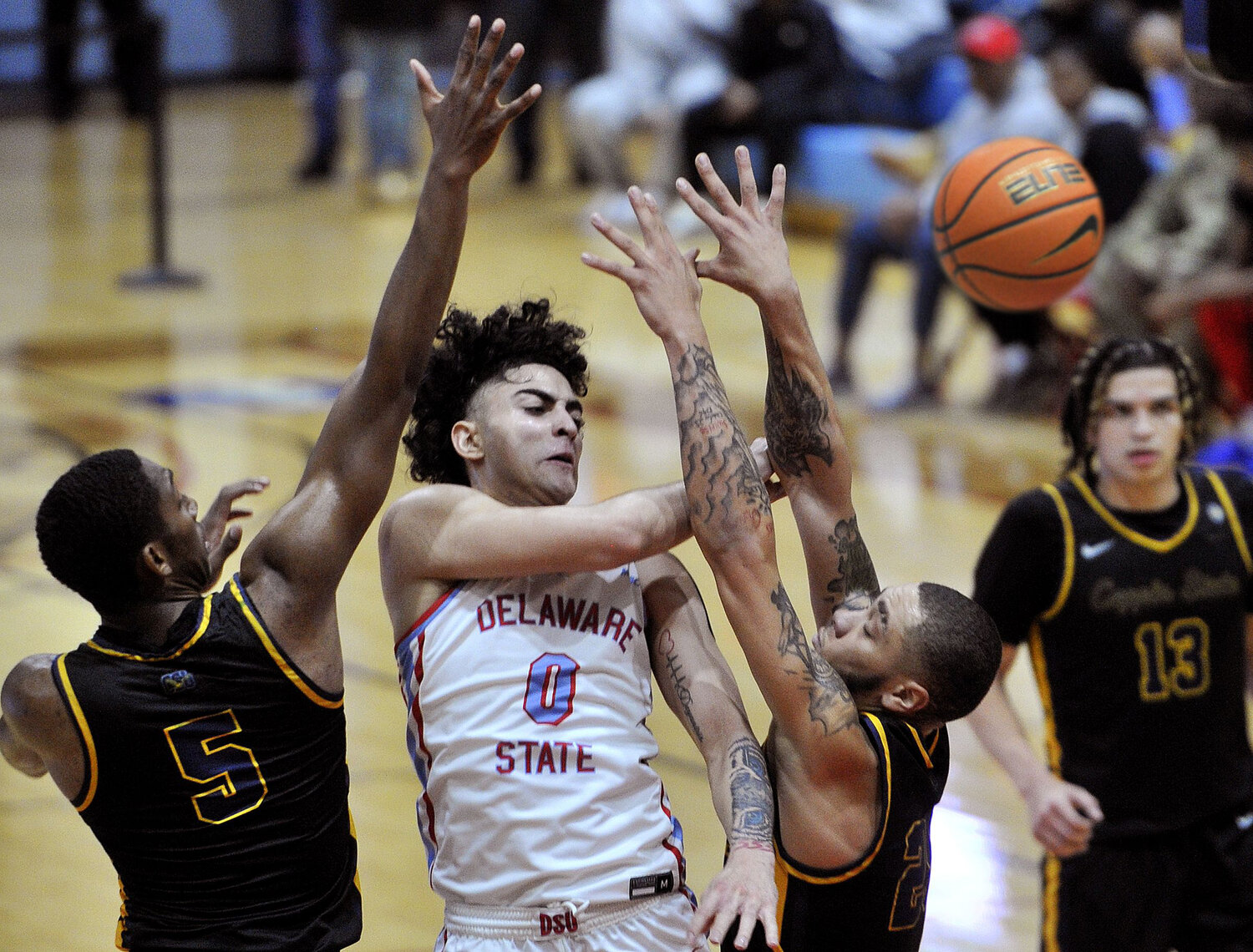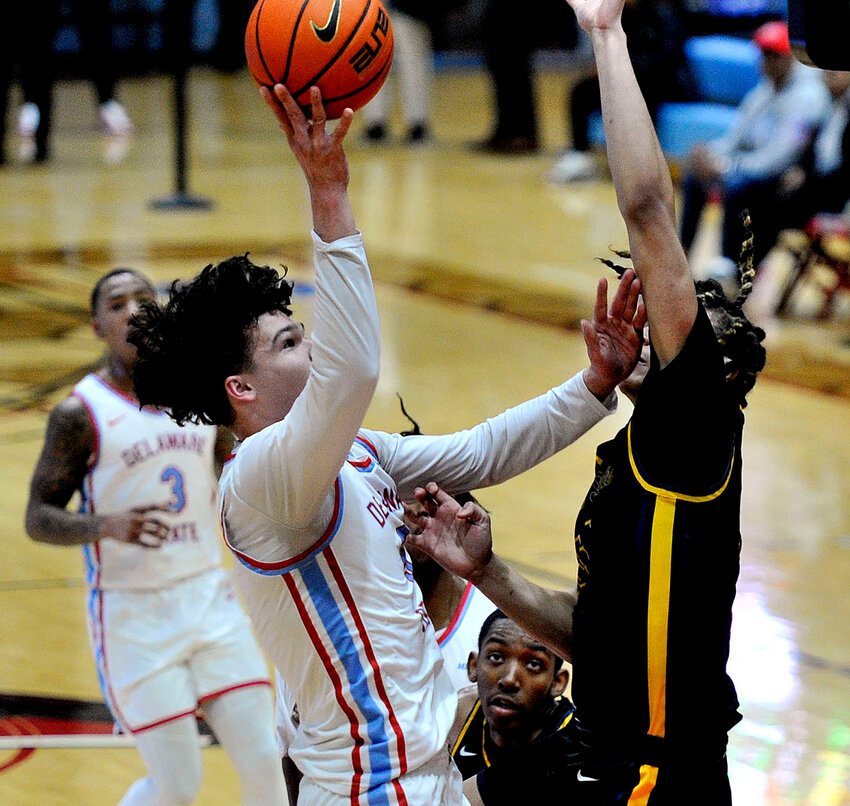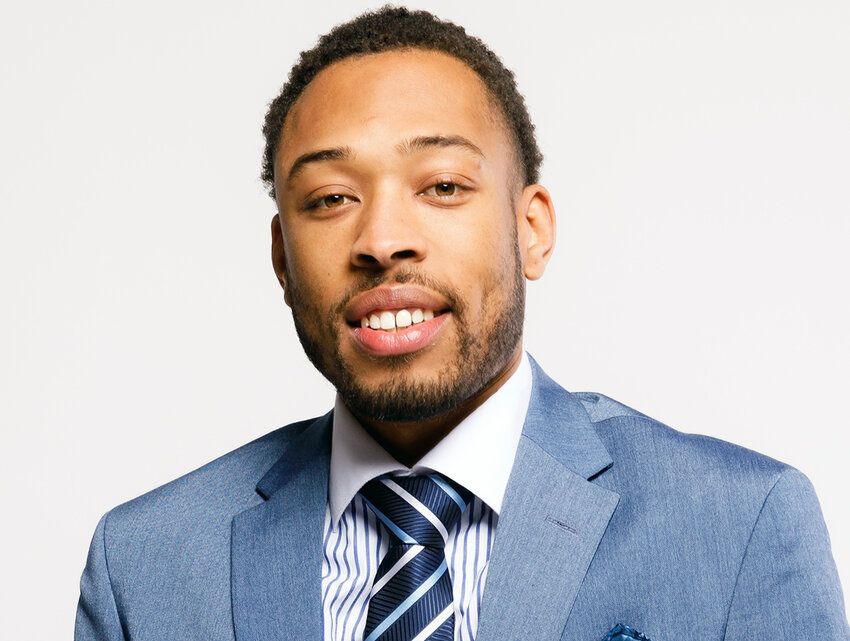Delaware State athletics jumping into the collective game
DOVER — It was only a few year ago that alumni providing money for a college’s student-athletes was illegal.
So for Khalil Brown, whose job it is to help Delaware State’s …

You must be a member to read this story.
Join our family of readers for as little as $5 per month and support local, unbiased journalism.
Already a member? Log in to continue. Otherwise, follow the link below to join.
Please log in to continue |
Delaware State athletics jumping into the collective game
DOVER — It was only a few year ago that alumni providing money for a college’s student-athletes was illegal.
So for Khalil Brown, whose job it is to help Delaware State’s athletes get paid, educating people is still a big part of what he does.
Of course, the fact the NCAA’s rules regarding the use of Name-Likeness-Image are continually evolving doesn’t make it any less complicated.
“It’s the education piece that’s the toughest,” said Brown, DSU’s Associate Athletic Director of External Affairs.
“You’re talking about, what is a collective? What is NIL? How can we really educate our fan base, our community and even the individual who’s going to run the collective? How can we educate them all on what this is?”
Brown is the person leading Delaware State into unchartered territory right now.
The 2018 DSU grad is in charge of establishing the Hornet302Nation collective that the school announced it is forming earlier this month.
A collective is the group that both raises money but also seeks out money-making opportunities for a specific school’s student-athletes. They popped up quickly around the country after the NCAA ruled that athletes can be paid for their name, likeness and image.
Collectives also became important with the creation of the NCAA Transfer Portal, where student-athletes can now switch schools easily. How much money an athlete can make now seems to be a big part of their transfer decision.
Along with being a recruiting tool, Delaware State hopes that its collective will increase the visibility of its athletic department through its athletes.
“When we look at the dynamic of the NCAA and how its landscape is changing drastically on a daily basis, it’s important that we continue to develop our program in uniform,” Delaware State athletic director Dr. Alecia Shields Gadson said in a press release.
“This will also allow us to remain relevant in this competitive landscape and continue to raise the bar,” she added.
Ultimately the person who runs the DSU collective will be outside the school itself.
“When you look at a university, they’re going to create their own taste and flavor,” said Brown. “We wanted to do it where we have control over what it looks like from a vision standpoint.
“It’s going to be run by an individual outside the institution. They’re going to have full control of the day-to-day (operations), paying the athletes, getting them these opportunities. We’re just kind of painting the vision and they’re executing it.”
Like virtually every school, DSU has lost some prominent student-athletes to the Transfer Portal. How much the ability to make money at a new school played a role in their decision probably varies from athlete to athlete.
But Brown said there’s no question that Delaware State needed to get involved in the collective business.
The University of Delaware has had the Blue Collective for the past couple years.
“We weren’t in the collective game, we weren’t really in the big NIL game,” said Brown. “Granted there were some guys and girls that were getting small deals. But nothing on the scale of some of those Power Fives (schools).
“Now they’re like, ‘I’m having a good season, other schools are recruiting me and they’re talking about they can pay me. There’s money out there.’ It affected us. I know athletes have been leaving because they see opportunities somewhere else.
“That’s what we’re trying to prevent. We’re trying to say, ‘Hey, we’re now in this game. You don’t have to go to ‘X’ university to make money now. You were recruited here and the goal is to keep these kids.”
When this all started, college student-athletes still had to do something — like make appearances or do social-media endorsements — to get paid NIL money.
But the latest NCAA rulings make it look like student-athletes may soon be able to be paid directly.
In the meantime, a big part of Hornet302Nation will be finding opportunities for Delaware State student-athletes to earn money.
Brown said the collective is important to “put us in the game.”
“We’re a mid-major small university, an HBCU,” he said. “So kids are not swarming to come here. NIL is a big piece of that — to really make revenue off of your name.”


 By
By 





